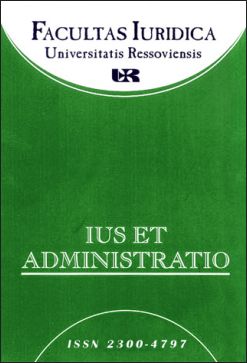The Institution of liberum veto in the Eyes of Foreigners in the Second Part of XVII Century
Keywords:
Liberum veto, Noble Republic of Poland, state philosophy, policy, nobles, political doctrine, unanimity rule, 17 th century, noble democracyAbstract
The Republic of Poland, as well as its political system were rarely the subject of foreigners’ interest in the second half of the 17thcentury. A few philosophers of state from the Western Europe dedicated marginal space to the Polish policy in their works. Poland was considered to be a powerful state, important in the international relations, but a little bit exotic for the Western Europe. Some descriptions of the policy of the Polish-Lithuanian state can be found in the diaries and memories of foreign travellers, diplomats or soldiers, who stayed in Poland at that time. Among political institutions the most popular for the foreigners were, the unknown elsewhere: a unanimity rule and the right of a single land deputy to break the Sejm (Polish parliament) named liberum veto. The phenomenon of the Polish ius vetandi aroused extreme emotions among foreigners – from condemnation (German Hermann Conring) to fascination (Frisian Ulrich Huber). Commonly the rule of liberum veto, considered by Poles as one of the foundation of their nobility freedom, aroused astonishment. Many foreign publicists appreciated the potential of Poland, but they expressed their negative attitude to the Polish parliamentary disorder. They admonished of abusing of the supreme authority by the nobility. They signalized chaos, corruption and the fall of political culture. The most space was dedicated to the incompetent use of liberum veto, warning about its catastrophic consequences. The neighbouring countries were interested in maintaining the unmoved policy of Poland, effectively paralyzing the alleged power of the state.
Downloads
Downloads
Published
How to Cite
Issue
Section
License
Copyright (c) 2013 Ius et Administratio

This work is licensed under a Creative Commons Attribution-NonCommercial-NoDerivatives 4.0 International License.

